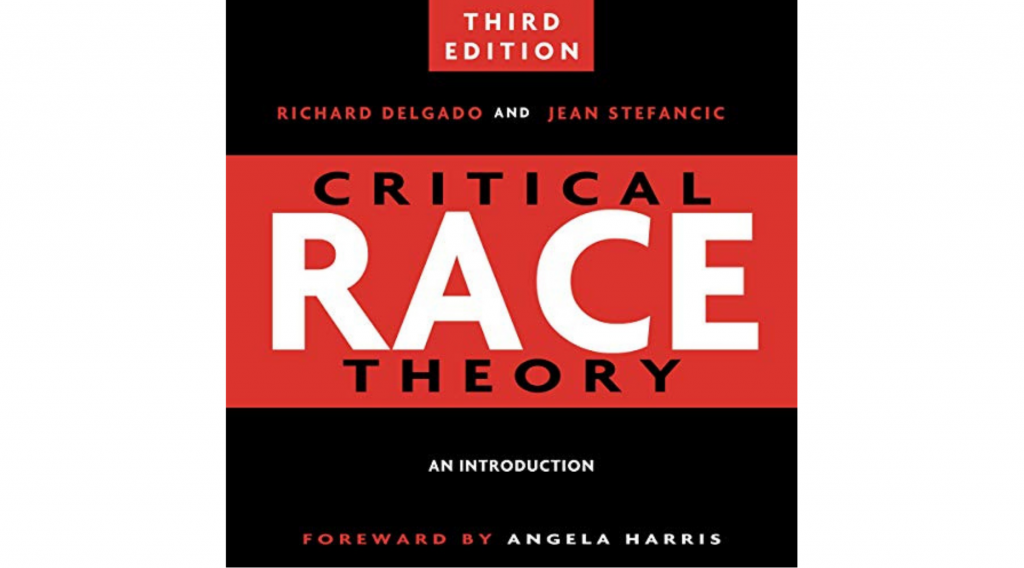
Please Follow us on Gab, Minds, Telegram, Rumble, Gab TV, GETTR
Guest post by Scott Sturman at STARRS.us
Long before power is achieved, radical movements dedicated to transforming societies often reveal methods and reasons for attaining political objectives. Citizens typically discount the threat, thinking its proponents so outlandish and disruptive that the warning goes unheeded. The Communist Manifesto, Mein Kampf, Rules for Radicals, and publications by critical race theorists clearly present intentions and prerogatives, often in great detail. The primary source for this article is Richard Delgado’s book, Critical Race Theory. Delgado is one of the founders of Critical Race Theory (CRT), and along with fellow Harvard associated lawyer and CRT intellectual patriarch, Derrick Bell, advocates a doctrine that is incompatible with military service and at odds with the tenets of a constitutional republic. Among CRT’s disquieting proclamations attesting to America’s non-redeemable foundations are the following:
• America is an inherently and permanently racist society steeped in racial oppression. Race rather than class breeds stratification. Political, social, and legal systems are by definition racist and unjust. Being invalid, they must be replaced.
• Racism is ingrained in America, and equality, freedom, meritocracy, and justice are instruments of oppression. Racial preferences in education and employment can ameliorate the problem, but the system is fatally flawed and not reformable. This calls for complete transformation of the system with its inevitable demise and substitution.
CRT acknowledges debt to two foundational movements: Critical Legal Studies, where every legal case is thought not to have a correct outcome and that outcome is solely based on one’s perception and radical feminism, which emphasizes patriarchy and the social domination of men over women. Inherent in CRT’s doctrine is coopting language to control the narrative. The glossary in Critical Race Theory is 1/3 the length of the book. From intersectionality to social construction to neocolonialism, Delgado provides the approved definition. Any critic of CRT is burdened with a Catch 22 type dilemma – it cannot be criticized by conventional criteria, and only the victim can determine what is true and what is false.
CRT resorts to hypothetical narratives to convey the point, and Delgado uses them at the beginning of chapters to lead the reader toward the approved way of thinking. Questions at the end of the chapter reinforce the message. The book is written in the manner of a rudimentary text book for the true believer. Sought after conclusions rely on the premise that denies American exceptionalism and that racism is ordinary and difficult to cure, and the unique voice of color is granted a priori status to discuss racial issues. The promotion of division using an antithetical rebuttal to e pluribus unum segregates humanity into ever smaller iterations of sex, race, ethnicity, and sexual preference. Interest conversion, Bell’s signature theory, postulates that racism advances the interests of white elites materially and working class whites psychologically. This impedes change and cements white privilege in society.
CRT criticizes liberalism for incremental progress to racial problems and holds that a color blind society is not an acceptable solution. CRT’s demand for revolutionary change, contempt for traditional institutions, and the willingness to resort to extreme measures to wreak havoc can be summarized in Derrick Bell statement, “CRT recognizes that revolutionizing a culture begins with radical assessment of it.”
At the conclusion of the book Delgado shares a wish list of CRT’s goals:
– Elimination of meritocracy
– No one is compelled to assimilate within occupations, neighborhoods, and schools. Culture, language, accent, religion, and dress will be maintained without imposed penalties.
– Economic democracy
– Cumulative voting where voters cast as many votes for one candidate as the number of positions up for election
– Court regulation of hate speech
– SCOTUS acceptance of race conscious measures for jobs and education
– Reparations
– Follow the course of Critical Legal Studies and embed its doctrines into academic teaching and scholarship
When someone defends implementation of CRT into the military, while using euphemisms like equality, fairness, or dignity, it is prudent to return to CRT’s source documents. The goals of the movement and proposed course of action are written boldly and unequivocally. The gap between a soldier, sailor, and aviator vowing to support and defend the Constitution and a group that holds America is fatally flawed and demanding its replacement is unbridgeable. Perhaps H.L. Mencken’s said it best, “The urge to save humanity is almost always a false front for the urge to rule.”
You Won’t Get Anywhere Else What You Get From CDMedia! Donate!
- Fire In the Fire Department – Who Will Save Us From Communism?
- The Future Of Europe – The Continent’s “Judeo-Christian heritage” To Be Preserved

